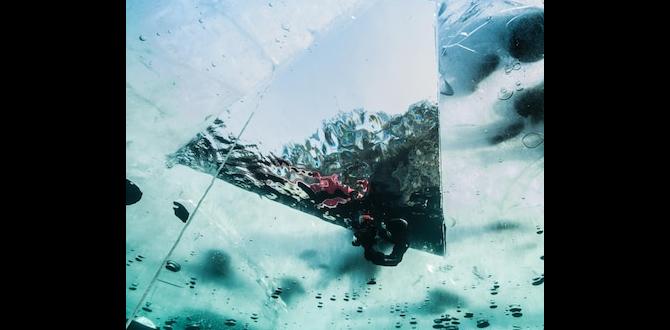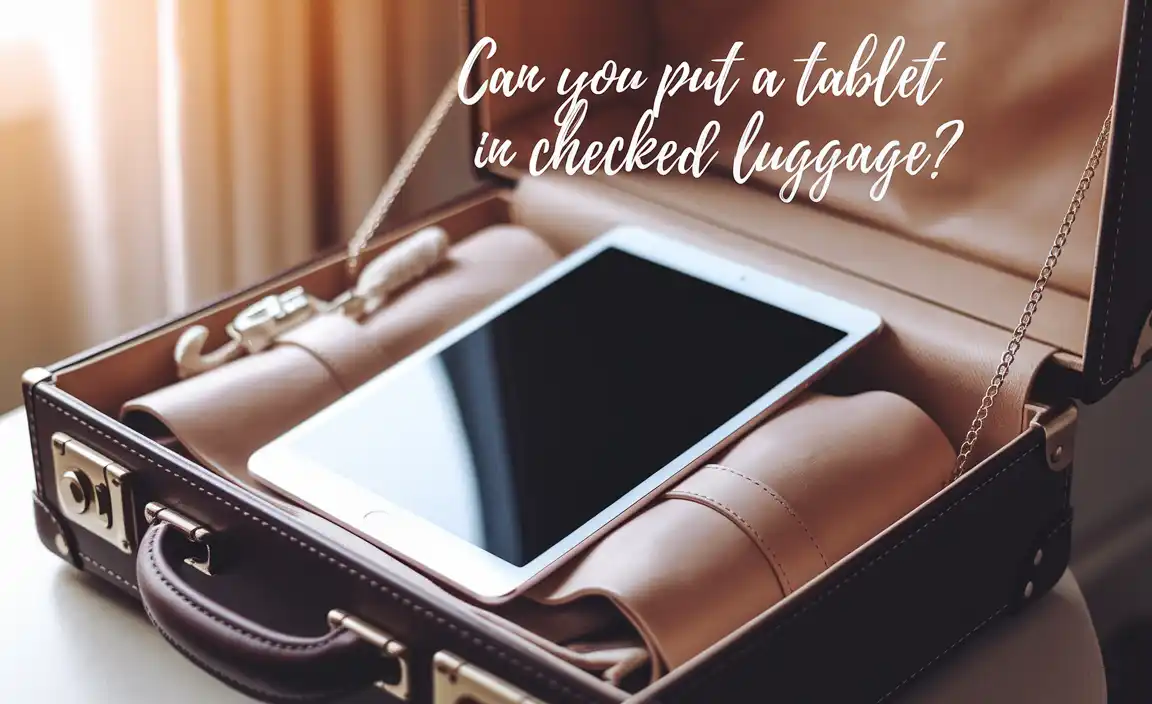Planning a trip to Athens? Knowing where to go and what to watch out for is key to a wonderful experience. This guide helps you identify potential safety concerns and highlights the best, most welcoming parts of the city, ensuring your Athenian adventure is both exciting and worry-free, from ancient wonders to delicious food.
Athens is a vibrant city, buzzing with history and culture. But like any major destination, it’s good to be prepared. Some areas might feel a bit run-down or have higher petty crime rates, which can understandably make travelers feel uneasy. Don’t let that worry you! With a little local knowledge, you can easily steer clear of any unwelcome situations and focus on soaking up the magic of Athens. We’ll cover everything you need for a secure and delightful trip.
Understanding Athens: The Good, The Not-So-Good, and How to Navigate
Athens is a city of contrasts. Millions visit each year to marvel at the Acropolis, explore ancient ruins, and enjoy the lively atmosphere. While most visits are perfectly safe and enjoyable, it’s wise for any traveler, especially those new to the city, to have a general awareness of their surroundings. This isn’t about fear, but about smart travel. Being informed helps you make confident choices and truly relax. Let’s break down what you need to know to avoid common pitfalls and find your perfect Athenian havens.
Potential Areas to Be Mindful Of
While Athens is generally safe, like any large, bustling city, certain neighborhoods can attract more reported incidents of petty theft or feel less welcoming to tourists late at night. This doesn’t mean they are dangerous zones, but rather places where travelers should exercise a bit more caution, particularly regarding their belongings. Keeping an eye on your possessions and personal safety is always a good idea.
Omonia Square and its immediate surroundings: This historic square is a major transport hub. During the day, it’s busy and a convenient place to pass through. However, it’s known to attract a mix of people, and pickpocketing can be a concern here, especially in crowded areas. It’s generally advisable to be extra vigilant with your belongings and avoid lingering too long, especially after dark.
Areas around Monastiraki and Syntagma Squares (late at night): While these are prime tourist hotspots during the day, some of the smaller side streets or less crowded areas directly around them can feel a bit less safe late at night. The main thoroughfares are usually well-lit and busy, but it’s always a good practice to stick to well-lit, populated streets when walking at night.
Certain parts of Metaxourgeio and Vathis Square: These neighborhoods have seen a lot of revitalization, but they can also be areas where you might encounter more visible homelessness or feel less comfortable walking alone late at night. During the day, they offer interesting street art and local life, but careful consideration is advised for evening strolls.
It’s important to remember that these areas are not “no-go zones.” Many locals live, work, and socialize in these neighborhoods. The key is awareness and avoiding situations where you might be an easy target, such as flashing expensive items or walking alone in deserted streets late at night.
Discover Your Athenian Havens: Safer & Welcoming Neighborhoods
The beauty of Athens is that its most iconic sights and welcoming districts are incredibly safe and easy to navigate. These areas are perfect for exploring ancient history, enjoying delicious food, and experiencing the vibrant local culture without a hitch.
Plaka: Nestled at the foot of the Acropolis, Plaka is the historic heart of Athens. It’s a charming maze of neoclassical architecture, narrow cobblestone streets, souvenir shops, traditional tavernas, and cozy cafes. During the day and evening, it’s filled with people, making it feel very safe and lively. It’s a perfect place to wander, enjoy a meal, or find that unique souvenir. Plaka is a must-visit for its atmosphere and safety.
Monastiraki (Daytime): While we mentioned being mindful at night, Monastiraki Square itself is a fantastic and safe place to visit during the day. It’s a bustling hub where you can explore the flea market, admire the ancient ruins, and take photos of the Acropolis. The energy is infectious, and the crowds of fellow travelers and locals create a secure environment.
Syntagma (Daytime & Evening): Home to the Greek Parliament and the Tomb of the Unknown Soldier, Syntagma Square is a major central point. It’s always well-maintained, well-lit, and patrolled. Witnessing the changing of the guard is a popular and safe daytime activity. The surrounding streets are full of shops, restaurants, and hotels, making it a central and secure base for your explorations.
Thissio: Located just west of Monastiraki, Thissio offers stunning views of the Acropolis, especially from its pedestrianized boulevard. It’s a more relaxed atmosphere than Monastiraki, with lovely cafes, restaurants, and a generally safe and pleasant vibe for evening strolls.
Kolonaki: This upscale neighborhood is known for its designer boutiques, art galleries, and sophisticated cafes. It’s a clean, well-kept area, generally considered very safe and pleasant for shopping and dining, offering a more refined Athenian experience.
Psyri: While Psyri has a bohemian and slightly edgier vibe, it’s increasingly popular with locals and tourists for its vibrant nightlife, street art, and lively tavernas. stick to the main, well-lit streets, and you’ll find it’s a fun and safe area to explore, especially in the evenings.
Essential Safety Tips for Your Athens Trip
Being prepared is the best way to ensure a smooth and enjoyable trip. Here are some practical tips from Journey Essentials that will help you feel confident and secure as you explore Athens.
Keep Your Belongings Secure
Wear a cross-body bag: This makes it harder for someone to snatch your bag.
Keep valuables out of sight: Don’t flash expensive cameras or jewelry.
Be aware in crowded places: Crowded markets, public transport, and tourist attractions are common spots for petty theft.
Use hotel safes: Store extra cash, passports, and important documents securely.
Consider a money belt: For extra security, especially when traveling between locations.
Travel Smart, Travel Safe
Public Transportation: Athens’ metro is generally safe and efficient. Be mindful of your belongings on busy lines, especially those heading to and from the airport or port. Avoid empty carriages late at night.
Taxis: Always use official taxis. Look for the distinctive checkered stripe on the side and the “TAXI” sign on top. Agree on a fare or ensure the meter is running. Apps like FREE NOW (formerly Beat) are also reliable for booking taxis.
Walking at Night: Stick to well-lit, populated streets. If you’re unsure, take a taxi or ride-sharing service.
Emergency Numbers: Know the local emergency numbers. In Greece, the general emergency number is 112.
Stay Hydrated and Sun-Protected: Especially during warmer months, Athens can get hot. Carry water and wear sunscreen.
Embrace Local Culture Respectfully
Dress Modestly for Religious Sites: When visiting churches or monasteries, ensure your shoulders and knees are covered. This is a sign of respect.
Learn a Few Greek Phrases: A simple “Yassas” (hello) or “Efcharisto” (thank you) goes a long way and is appreciated by locals.
Be Patient: Service might be more relaxed than you’re used to. Enjoy the pace and savor the experience.
Packing for Comfort and Confidence
As Michael C. Herrera from Journey Essentials, I always emphasize that comfort and preparedness are key to stress-free travel. For Athens, think practical and stylish.
Luggage Essentials
Daypack: A comfortable, secure daypack is perfect for carrying essentials like water, a snack, sunscreen, a light jacket, and any travel documents. Look for one with anti-theft features if possible.
Comfortable Walking Shoes: You’ll be doing a lot of walking on cobblestones and uneven surfaces. Prioritize comfort and support.
Light Layers: Evenings can be cooler than the day, so a light cardigan or shawl is useful.
Sun Protection: Hat, sunglasses, and high-SPF sunscreen are non-negotiable.
Personal Care for Peace of Mind
For travelers who might need extra discretion and comfort, managing personal care needs is crucial. At Journey Essentials, we understand that carrying necessary personal items shouldn’t be a source of stress.
Discreet Packets: For adults or children who use protective underwear or adult diapers, consider purchasing them in smaller, discreet packaging that can fit easily into a daypack or suitcase. Brands often offer travel-sized packs or individually wrapped options. This ensures you have what you need without drawing unnecessary attention.
Comfortable Undergarments: Choose breathable fabrics that wick moisture, which is especially important in warmer climates.
For parents traveling with young children, carrying a small “diaper essentials” kit in your daypack can be a lifesaver. This would include a couple of spare diapers, wipes, and a changing pad. For longer journeys, consider overnight or high-absorbency options that offer reliable protection, ensuring comfort during long tours or travel days.
Organizations like the National Association for the Prevention of Child Abuse & Neglect (NSPCC) offer general child safety tips that are good to keep in mind, but for specific diapering needs, focus on brands and products known for their absorbency and leak protection.
Navigating Athens’ Public Transport System
Athens has a competent public transport system that can get you to most major attractions. Understanding how it works will save you time and money, and help you avoid common tourist pitfalls.
The Metro: Your Best Friend
The Athens Metro is modern, clean, and efficient. There are three main lines (Red, Blue, and Green) that connect key areas of the city, including the airport and the port of Piraeus.
Tickets: You can purchase tickets from machines or ticket offices at any station. Single tickets, day passes, and multi-day passes are available. A single ticket is valid for 90 minutes and allows you to switch between metro, bus, and tram.
Validation: Remember to validate your ticket at the machines before entering the platform area. Failure to do so can result in a fine.
Security: While generally safe, be aware of your surroundings, especially during peak hours. Keep your bag close and avoid displaying valuables.
Buses and Trams
Buses and trams cover areas not served by the metro. Tickets are the same as for the metro and must be validated. Bus stops can sometimes be a bit confusing, so use apps like Google Maps for real-time information.
Trolleybuses
These electric buses are slower but offer access to more local neighborhoods. Tickets are also interchangeable.
Navigating with Children or Specific Needs
When traveling with young children or if you have personal comfort needs, public transport requires a bit more planning.
Strollers: Most metro stations have elevators, but not all. Buses can be a bit trickier with large strollers. Plan your routes, or opt for taxis if convenience is paramount.
Accessibility: While improvements are ongoing, not all stations are fully accessible. It’s worth checking the official Athens Urban Transport Organization (OASA) website for the latest information on accessibility.
Comfort During Travel: For longer journeys, carrying water and snacks is essential. If you use adult diapers or protective underwear, ensure you have a discreet way to carry spares and dispose of used items appropriately. Many travel-focused personal care brands offer solutions designed for discreet use and easy disposal when on the go.
Eating and Drinking Safely in Athens
Athens is a culinary paradise, from traditional tavernas to trendy bistros. Enjoying the food is a highlight, and with a few simple tips, you can eat with confidence.
Choosing a Taverna
Look for Busy Places: A busy taverna, especially with locals dining, is usually a good sign of fresh food and quality.
Check the Menu: Most restaurants display their menus outside. Look for places that offer a good variety and reasonable prices.
Hygiene: While rare, if you have concerns about hygiene, step inside and observe the general cleanliness of the dining area and restrooms.
What to Drink
Bottled Water: Stick to bottled water, both still (nero) and sparkling (soda). Tap water is generally safe to drink in Athens, but many tourists prefer bottled for taste.
Local Wine and Beer: Enjoy the local wines (retsina is a classic) and beers.
Food Sensitivities and Dietary Needs
If you have allergies or dietary restrictions, don’t hesitate to inform your server. Most places are accommodating.
Communicating Needs: Have phrases ready in Greek, or use a translation app. Key phrases include “allergia” (allergy) and “cheto” (I don’t eat…). For example, to state a nut allergy, you might say “Cheto nootz” (I don’t eat nuts).
* Adult Diapers and Comfort: For individuals using adult diapers or absorbent products, managing meals out is easy with the right preparation. Ensure you have discreet access to replacements and disposal options. Many travel-tailored personal care lines offer very thin, highly absorbent products that can be worn comfortably under regular clothing, giving you the freedom to enjoy meals without worry. Sites like The National Autism Association, while focused on a different audience, offers general tips on travel preparation for individuals with specific needs that can be adapted for anyone requiring extra personal care considerations.
A Sample Meal Plan for a Day
Here’s a sample of what a safe and delicious day of eating in Athens might look like:
| Meal | Location/Focus | What to Expect | Safety Note |
| Breakfast | Local Bakery or Cafe (e.g., near Syntagma) | Koulouri (sesame bread ring), Tiropita (cheese pie), Greek coffee or fresh orange juice. | Quick, fresh, and widely available. |
| Lunch | Traditional Taverna in Plaka or Thissio | Souvlaki (skewered meat), Greek salad, Tzatziki, fresh bread. | Look for busy, authentic-looking spots. |
| Snack | Street food vendor or market stall in Monastiraki | Gyro pita, Spanakopita (spinach pie), or fresh fruit. | Ensure vendor looks clean and ingredients look fresh. |
| Dinner | Restaurant in Kolonaki or a well-regarded Psirri spot | Moussaka, Grilled fish, Vegetable mezes (small dishes). | Opt for popular, well-reviewed restaurants. Be mindful of the late dining hour. |
Conclusion
Athens is a city that truly captures the imagination, blending millennia of history with a vibrant, modern pulse. By understanding where to find its most welcoming corners and being mindful of a few practical safety tips, you can transform any potential worries into excitement. From the breathtaking views atop the Acropolis to the hidden tavernas in Plaka serving up mouthwatering Greek delights, your journey through Athens promises to be unforgettable.
Frequently Asked Questions
Q1: Is Athens a safe city for solo female travelers?
A1: Yes, Athens is generally safe for solo female travelers. Like any major city, it’s wise to be aware of your surroundings, avoid walking alone in deserted areas late at night, and keep your belongings secure. Sticking to well-lit, populated tourist areas and using reputable transport options will ensure a safe and enjoyable trip.
Q2: What are the main things to watch out for regarding safety in Athens?
A2: The most common issue is petty theft, such as pickpocketing, particularly in crowded tourist areas and on public transport. Be aware of your belongings, especially in places like Omonia Square, Monastiraki, and on busy metro lines. Avoid displaying expensive items.
Q3: Can I drink tap water in Athens?
A3: While tap water in Athens is generally considered safe to drink according to official sources, many visitors prefer to drink bottled water for taste or peace of mind. You can easily purchase bottled water from supermarkets and convenience stores.
Q4: How should I deal with taxi scams in Athens?
A4: To avoid taxi scams, always use official taxis with a meter and a “TAXI” sign on the roof. Avoid unlicensed drivers who approach you. If possible, use a ride-sharing app like FREE NOW (formerly Beat), which offers pre-set fares and driver information.
Q5: Are there specific areas in Athens that are considered dangerous?
A5: While no area is entirely “dangerous,” neighborhoods like Omonia Square and the immediate vicinity can experience higher rates of petty crime and may feel less comfortable late at night. It’s advisable to be extra cautious in these specific spots and stick to main, well-populated areas, especially after dark.
Q6: Is it safe to use public transportation in Athens, especially at night?
A6: Athens’ metro system is generally safe and efficient for getting around. During peak hours, be extra vigilant against pickpockets. Late at night, it’s always a good idea to choose well-lit routes and consider sharing a carriage with other passengers. Buses and trams have similar considerations.
Q7: What should I do if I need assistance or feel unsafe in Athens?
A7: The universal emergency number in Greece is 112. You can also approach police officers, hotel staff, or local business owners for assistance. For non-emergency situations, your hotel concierge can offer valuable advice and support.





